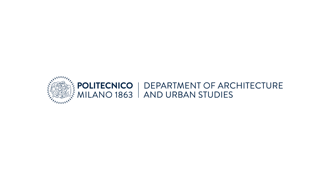Session
Beyond the Pavement: A Data Driven Blueprint for Climate-Resilient Cities with Nature-based Solutions
Track 2 - Special Session
Cities and regions worldwide face escalating climate pressures, from worsening heat waves to record rainfall phenomena. The rapidly evolving climate stresses demand frontier research and insights on how cities can transform vulnerability into opportunity. This session explores how nature-based solutions (NbS), innovative urban design and spatial analysis can foster resilient and equitable futures for urban planning and policies. By spotlighting interdisciplinary research at the nexus of environment, design, data science, and policy, this track will help chart possible transformative pathways for regeneration. Transformative change refers to systemic shifts in urban design and governance, aiming at creating more adaptive, inclusive cities. NbS, such as green roofs or urban wetlands, offer scalable approaches to improve micro-climates and reduce urban heat islands, but their integration into the built environment faces challenges, including regulatory barriers and limited resources. This session will emphasize the role of data science in driving these solutions forward through advanced geospatial analysis, machine learning, and climate modelling, enabling cities to mitigate climate impacts, enhance decision-making and resource allocation. Ultimately, the session will highlight the social and equity impacts of NbS, focusing on how these solutions can provide underserved communities with access to green spaces, improved air quality, and resilience against climate stresses.
Key topics include:
Green and Blue Infrastructure: Quantitative studies of green corridors, rain gardens, wetlands, and their multifunctional value of ecosystem services.
Design Driven Adaptation: Novel urban design strategies, such as adaptive shading systems, high albedo materials, and modular green inserts, which translate simulation insights into built interventions.
Spatial Intelligence: Cutting-edge methods in remote sensing, GIS, LiDAR, and spatial analytics for mapping heat island patterns, flood risk, and social environmental inequities.
Advanced Climate Simulation: Integrative models coupling micro climate, building-scale physics, and regional projections to stress test intervention scenarios.
Transformative change and Governance: Frameworks linking data-driven resilience metrics to policy pathways, collaborative governance, social and community equity impacts.
Expected Contributions include:
Innovative Methods: Leveraging machine learning for diverse applications (land cover mapping, climate analysis) while integrating climate-model outputs directly into design workflows;
Empirical Insights: Field validated evidence of co-benefits (thermal comfort, stormwater retention, biodiversity enhancement, and social well-being);
Multi-Scalable Frameworks: Decision support tools and policy recommendations that enable replication across diverse urban and regional contexts.
Presentations:
056 Timpe Axel, Photosynthetic Systems in Architecture (PhoSA): a design|build|research approach
070 Ziebell Dag-Ole, OPEN SPACE CLIMATE - Towards a Holistic Climate-Impact Classification of Urban Open Spaces
112 Mahmoud Israa, Urban Design as a platform to promote biodiversity, green infrastructure and equality in cities with Nature-based Solutions
142 Pilogallo Angela, Mainstreaming Nature based Solutions in adaptation plans: designing and applying an evaluation framework
176 Zendeli Doruntina, Beyond the Heat: Revealing Socio-Spatial Inequities Patterns in Milan during Heatwaves
198 Deltregia Martinelli Giovanna, Governance Pathways for Implementing Nature-Based Solutions: From the Legal Framework to the Participatory Approach of the Italian NATALIE Case Study
Partner



